Case Study of the Use of Organic Land Care Practices at a Health Care Campus
SUNNYBROOK HEALTH SCIENCES CENTRE
Sunnybrook Health Services Centre is a major cancer research and treatment centre located in Toronto, situated on approximately 100 acres of land that includes a blend of gardens, lawn and woods. The diverse and beautiful grounds at Sunnybrook act as an extension of the treatment and care provided by the centre, helping to maximize the health benefits for staff, patients and visitors, while also providing a myriad of ecological benefits.
APPROACH TO DESIGN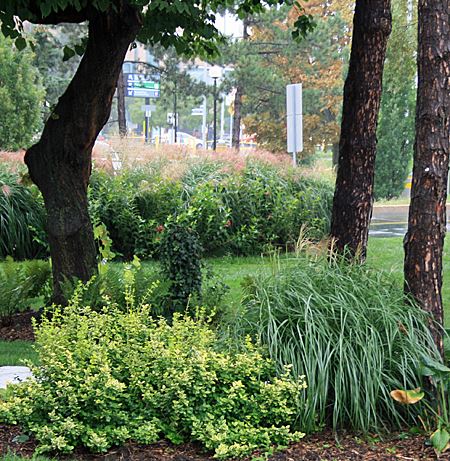
CONNECT LANDSCAPE HEALTH TO HUMAN HEALTH
Throughout history, nature has acted as aid in the healing process. Recent studies show that access to green spaces contributes to positive health outcomes such as enhanced psychological wellbeing, better pain management and increased physical activity. At Sunnybrook, the landscapes are integrated into the centre’s health promotion and self-care initiatives, which include physical mobility, emotional relaxation and spiritual care. As such, health workers and staff, as well as patients and families, are encouraged to visit the outdoor spaces for relaxation, respite and restoration.
Since 2005, Sunnybrook’s groundskeeping team, led by Head Groundskeeper Rohan Harrison, has worked to optimize the ecological health of the grounds. This has resulted in the adoption of 100% organic land care practices to build soil health, which in turn contributes to plant and tree health. As described by Mr. Harrison, “like in humans, proper nutrition (soil management) is the foundation to create and maintain a healthy, environmentally-friendly and sustainable landscape – that heals!”

INCREASE BIODIVERSITY AND TREE COVERAGE
In addition to the adoption of ecologically centred maintenance practices by transitioning to soil health and organic land care, the groundskeeping team has increased total plant and tree coverage and overall biodiversity.
Over the last decade, with donations from the national organization Tree Canada, and volunteers organized though the Highway of Heroes Living Tribute Campaign led by Landscape Ontario and well-known gardener Marc Cullen, Sunnybrook has increased the tree canopy by planting over 1170 native trees of 21 species. Currently, the tree canopy is at 32% and the goal is to reach a 40% tree coverage, which is well above the current average tree canopy coverage in the city of Toronto. In the summer of 2020, Sunnybrook planted 500 trees to establish an arboretum, thanks to a donation from Grand Trees Climate Solutions through the Highway of Heroes Living Tribute.
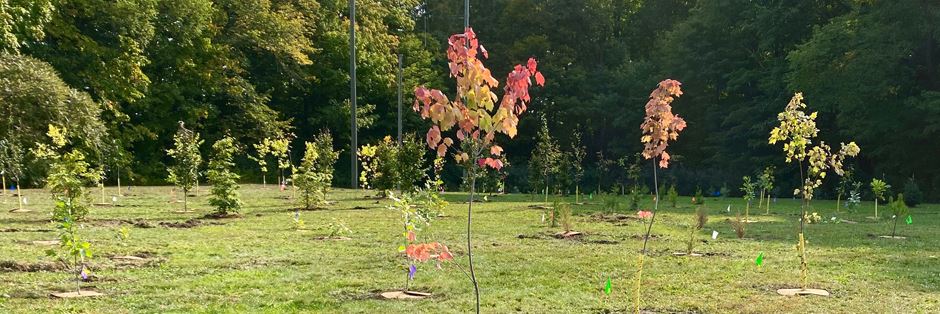
DESIGN GARDENS FOR DIFFERENT PURPOSES
With support from donors and partners, Sunnybrook has increased the number and diversity of gardens to create points of interest close to the health care facilities. These include a healing garden, a therapeutic garden, beds of edible and medicinal plants, a community planted garden and a butterfly garden, as well as a labyrinth. The diverse gardens offer places for relaxation and rejuvenation for health care staff, patients, caregivers and visitors.
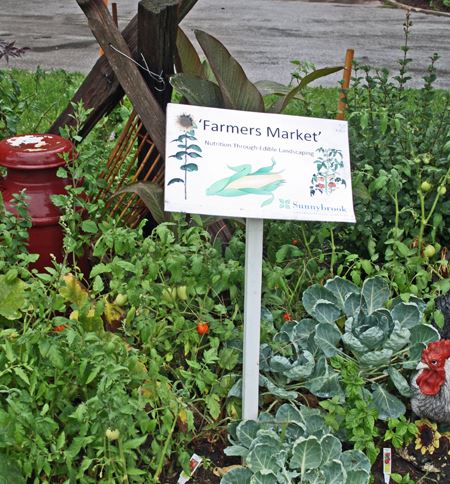 ROHAN’S TIPS FOR PLANT SELECTION
ROHAN’S TIPS FOR PLANT SELECTION
Take the time to select plants and trees suited to the existing growing conditions and for any specific purposes, such as windbreaks and shade.
Include native plants that require minimal maintenance as a way to reduce energy-intensive practices and maintenance time.
Plant native species to provide habitat and food for dwindling pollinator species. Bees, butterflies and birds spark joy and are good indicators of ecological health.
Promote multi-story planting to encourage greater biodiversity, interest and privacy. Greater plant biodiversity ensures increased tolerance to adverse conditions and increases plants’ ability to withstand attacks from both insects and disease.
Design garden beds - sensory gardens, contemplative gardens, edible gardens - so that each garden will resonate with different people at different times. Provide Interpretive signs to engage visitors and raise awareness about the plants or the purpose of the gardens.
Incorporate plant species that are medicinal or offer healing properties.
Plant companion plants to attract beneficial insects, repel pests and provide nutrients or offer support for each other.



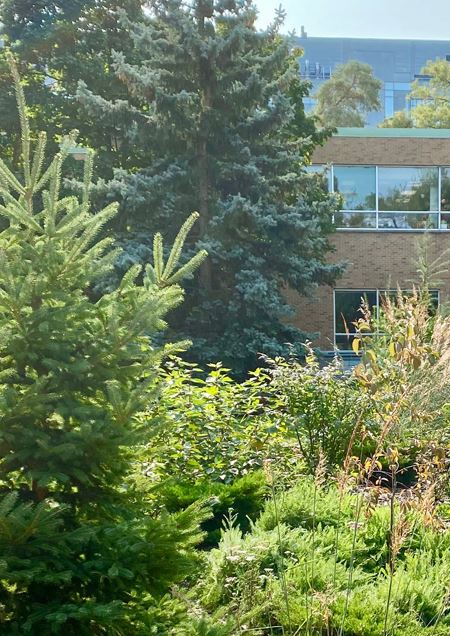 Diverse Plantings
Diverse Plantings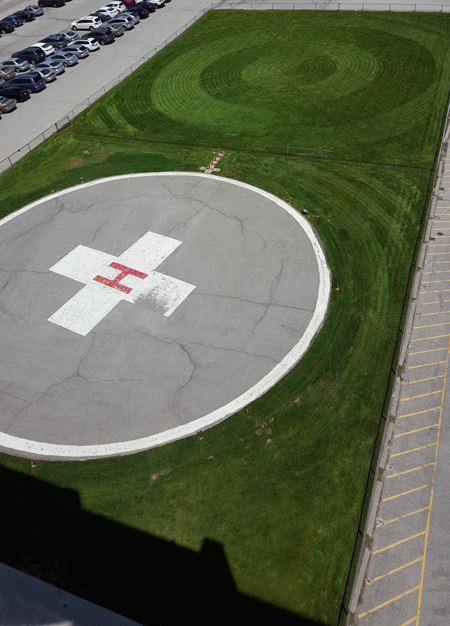 Ecological Turf Management
Ecological Turf Management